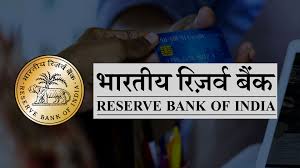RBI is an institution of national importance and the pillar of the surging Indian economy. It is a member of the International Monetary Fund (IMF).
- The concept of the Reserve Bank of India was based on the strategies formulated by Dr. Ambedkar in his book named “The Problem of the Rupee – Its Origin and Its Solution”.
- This central banking institution was established based on the suggestions of the “Royal Commission on Indian Currency & Finance” in 1926. This commission was also known as the Hilton Young Commission.
- In 1949, the Reserve Bank of India was nationalized and became a member bank of the Asian Clearing Union.
- RBI regulates the credit and currency system in India.
- The chief objectives of the RBI are to sustain the confidence of the public in the system, protect the interests of the depositors, and offer cost-effective banking services like cooperative banking and commercial banking to the people.

E-Mandate
eMandate is a feature by which the customer’s bank initiates the mandates to the sponsor bank (to which the amount has to be paid) or to the customer. The corporate moves the mandate via the sponsor bank to the concerned bank with the attributes of customer authentication. The eMandate system makes it easier for issuance and confirmation of mandate by the customers through alternate channels to a paper-based mandate.
Objectives of eMandate
The objectives of e-mandate are as follows:
- To create an authenticated mandate by the customer using electronic channels.
- To mandate the acceptance cycle of auto acceptance of mandates.
- To ensure secured and assured mandate acceptance.
Charges Levied
National Payments Corporation of India (NPCL) levies charges for the usage of the eMandate system of NACH. These charges include:
- Joining/Membership fee
- Transaction fee
- Network recovery charges
- Certification and on-boarding charges
- Taxes and statutory payments
- Testing
- Training
- Charges for offering value-added services
- Fines and penalties
The intervals for collection of such charges and the mode of the collection would be decided by NPCI in consultation with NACH steering committee and would be communicated to participating banks. NPCL furnishes a schedule of charges to all member banks. All charges would be without the inclusion of service tax or any other statutory charges that have to be paid separately.
Submission of eMandates
The destination banks, after verifying and confirming the authentication of the mandate, have to submit the mandate to NACH system for onward transmission to the sponsor bank within 48 hours of completion of the activity.
FAQs
What is an RBI eMandate?
An eMandate is a digital authorization from a bank account holder that allows a business or service provider to automatically debit a specific amount from their account on a recurring basis. This mandate system is governed by the Reserve Bank of India (RBI) and is typically used for payments like subscription fees, utility bills, loan EMIs, and insurance premiums.
How does the eMandate process work?
- Customer Authorization: The customer authorizes an eMandate through their bank or service provider’s website or mobile app.
- Verification: The bank verifies the customer’s details and authorizes the eMandate.
- Recurring Payments: Once the eMandate is set up, the agreed amount is automatically deducted from the customer’s account as per the defined schedule (monthly, quarterly, etc.).